9 Unbelievably True Tales of Philadelphia Mayors
The Philadelphia mayor’s race is in full swing — and something’s missing. It’s not as wild as the last time Philadelphia had a competitive Democratic mayoral primary.
In 2007, Dwight Evans stood outside the Not-Yet-Kimye Wendy’s, opened an empty hamburger bun, and asked, “Where’s the beef?” (He was talking about fellow candidate Tom Knox‘s record.) Bob Brady yelled at Knox. A man in a shark mascot costume engaged in serious commentary on the race. Even Milton Street was more fun last time.
That’s okay, though. Not every mayor’s race is that exciting. And it’s what happens once the winning candidate takes office that things get really interesting. Here’s a look at nine amazing true stories about Philadelphia mayors. Some are funny, some are sad, and some are just weird. Whoever wins this mayor’s race will assuredly add to the canon.
John Barker
The Foul-Mouthed
John Barker was a tailor who fought in the Revolutionary War, rising to the rank of brigadier-general. He later became sheriff and was elected mayor three times, in 1808, 1809 and 1812. (Mayors served one-year terms at the time.) He purchased Springland, a country home on the Neshaminy Creek, from the artist William Birch. The house was “torn to pieces by its whimsical purchaser,” per Birch. Barker “was an active politician, a warm partisan and a popular humorous speaker,” the 1895 Memorial History of the City of Philadelphia says. An opponent accused him of “employing language at which a Hottentot would blush, a Christian tremble.” The former term in that quote is now considered derogatory.
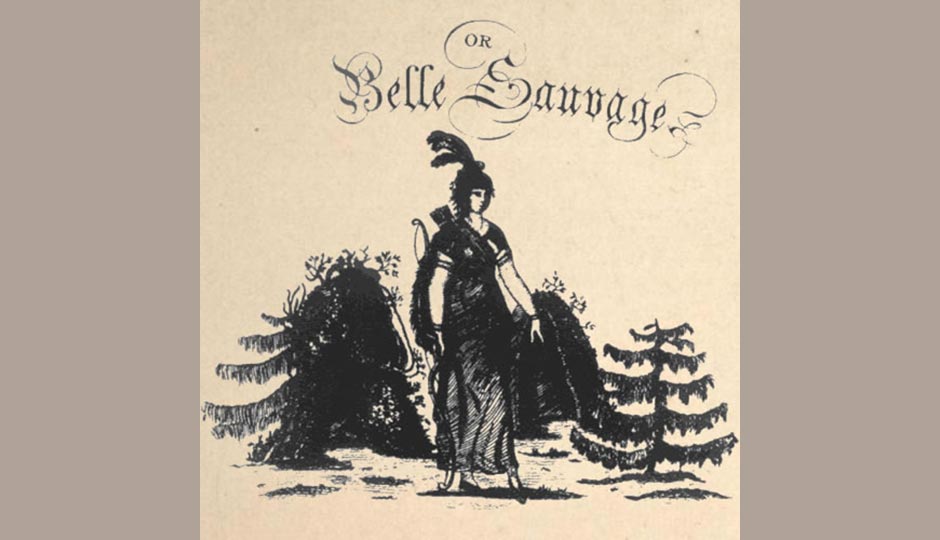
The cover to John Bray’s score of “The Indian Princess, or La Belle Sauvage.”
James Nelson Barker
The Operettist
Elected mayor in 1819 — sandwiched between one-year terms of Robert Wharton — James Nelson Barker was John Barker’s son. He was also a playwright who penned The Indian Princess; or, La Belle Sauvage, a musical play about Pocahontas. (He described it as an opera. It was first performed at the old Chestnut Street Theatre. It was the first play based on the Pocahontas story, which historians now believe is a myth.
John Swift
The Unwitting John
Per Thomas Keels’ Wicked Philadelphia: Sin in the City of Brotherly Love, two prostitutes were arrested in 1841 for soliciting Mayor John Swift (who served as mayor over three terms). The Walnut Street Theater was, back then, a popular place for prostitutes to ply their trade. Prostitutes “disrupted performances by standing on benches and waving at prospective johns in the galleries,” Keels writes.
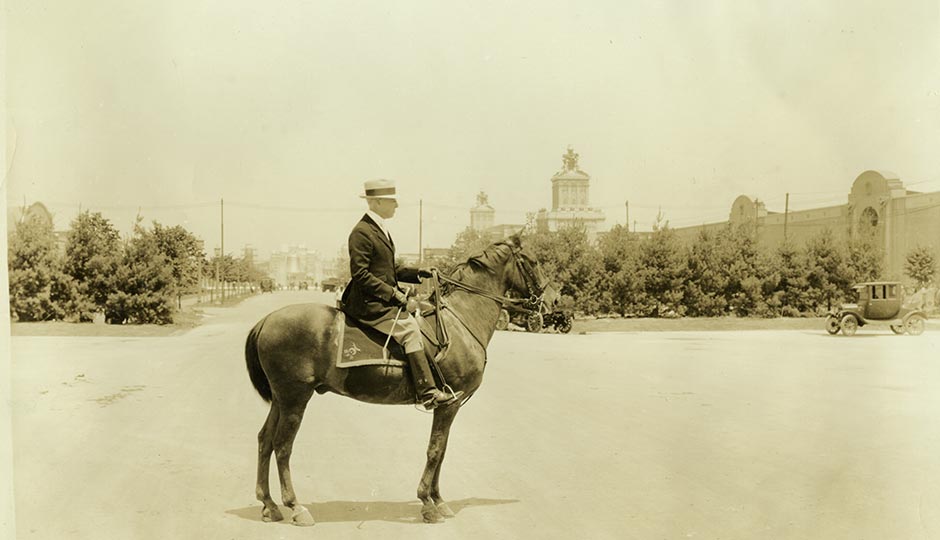
Mayor W. Freeland Kendrick inspecting the Sesquicentennial. Photo courtesy of PhillyHistory.org, a project of the Philadelphia Department of Records.
W. Freeland Kendrick
The Equestrian
Kendrick was mayor of this mad city from 1924 to 1928. He was also president of the city’s disastrous Sesquicentennial Exposition, which fell into receivership in 1927 after crowds were much smaller than anticipated. (Kendrick was an active Shriner, and rather than postpone the fair for a year as many suggested, he opened it the same day the Shriners held their convention in Philadelphia.) Keels, in Wicked Philadelphia, writes that Kendrick “had taken to riding around the fairgrounds on a handsome… steed, like a plantation overseer.” Please let the new mayor ride a horse to his or her inauguration in 2016.
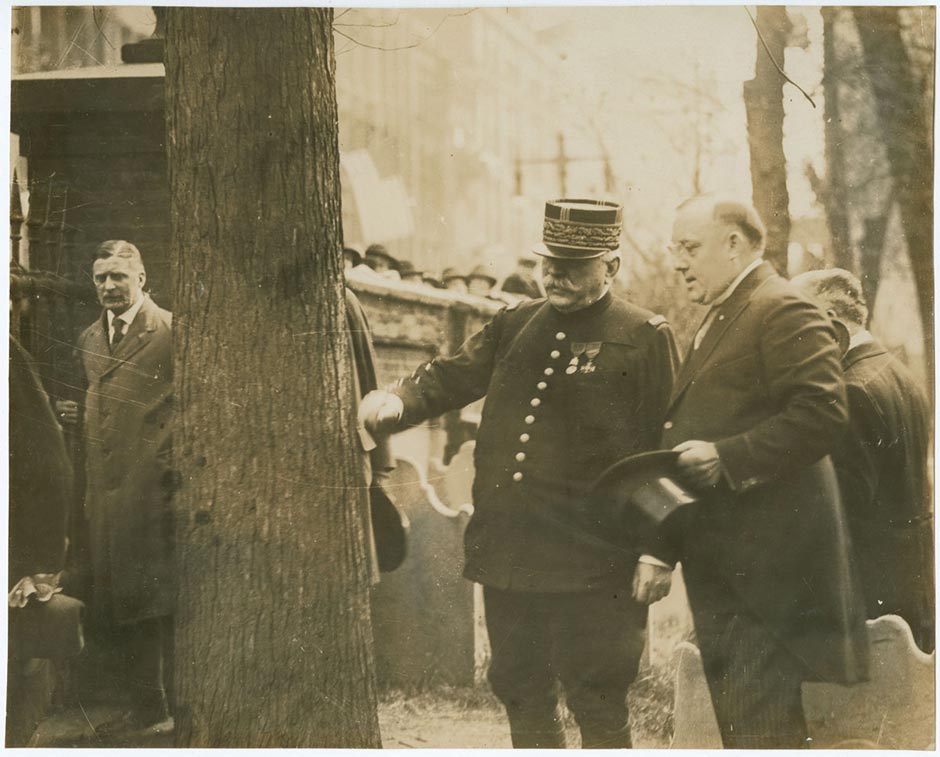
Marhsal Joseph Joffre (left) and Philadelphia mayor Thomas B. Smith visiting Benjamin Franklin’s grave on May 9, 1917. Photo via Library Company of Philadelphia
Thomas B. Smith
The Indicted
Smith, who served from 1916 to 1920, was indicted after the election-day murder of a policeman. Holy crap.
Smith, president of a company in the bail bonds business, won election with the backing of the Vare election machine. The Fifth Ward was then an immigrant ward corresponding roughly to Society Hill; it was nicknamed the “Bloody Fifth” due to its association with political violence. In a 1917 Council primary, the Vare machine had one candidate (Isaac Deutch) and the Penrose-McNichol alliance another (James Carey).
Philadelphia: A 300-Year History picks up the story:
While visiting a polling place on primary day, Carey was attacked and severely beaten by several members of a hired gang imported from New York City by the Deutsch camp. When policeman George Eppley tried to defend Carey, he was shot and killed by one of the gang. The gunman was later convicted of second-degree murder; Deutsch and six policeman working for him were found guilty of conspiracy. Mayor Smith, who had said earlier that “clubs would be trumps” in the Fifth Ward contest, was believed to have misused his office to help Deutsch, including the assigning of policemen to work for the Vare candidate. He was indicted on charges of impeding a free and fair election and committing a misdemeanor in office.
Judge Charles L. Brown called Smith “the chief and primal factor in this great disgrace for which I personally feel ashamed of my city.” Smith was acquitted in January 1919 after a nine-day trial, but “he could not escape the cloud of suspicion that hovered over the last two years of his administration,” per A 300 Year History. After his acquittal, the mayor shook hands with the jurors.
Richardson Dilworth
The Sullied
Richardson Dilworth is known for spearheading the post-World War II reform movement in Philadelphia along with Joseph Clark. He was mayor from 1956 to 1962. But when he tried to institute a $40 parking tax in 1961, residents threw garbage at him. If you’re wondering why everyone is still allowed to park in the center of Broad Street, perhaps politicians want to avoid having their suits ruined by rotted vegetables.
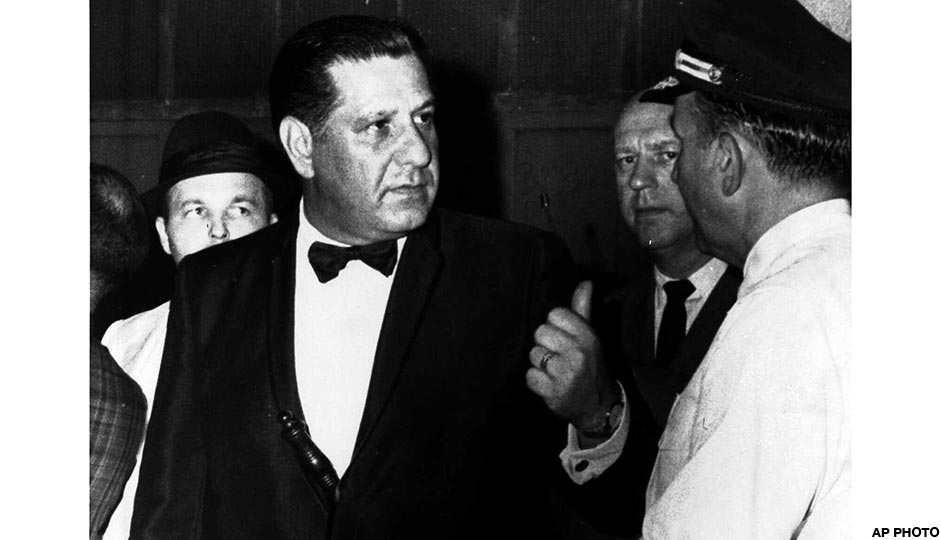
Frank Rizzo, Philadelphia’s former police commissioner, is seen with a nightstick tucked into his cummerbund as he directs police officers in Philadelphia, in this June 13, 1969 photo.
Frank Rizzo
The Breaker of Heads
Stories about Frank Rizzo could fill a book. Indeed, they have filled several, including 1977’s The Sayings of Chairman Frank OR I Never Saw My Mother Naked. “Councilman Foglietta, if you had any sense, you could take a reading of the crowd here today and go home and slit your throat,” is one of his quotes.
But let’s focus here on his response to accusations of police brutality. Mayor Rizzo, who served from 1972 to 1980, went on national TV after the U.S. Justice Department sued him, the police department and 19 other city officials. Rizzo, accused of systematic brutality against minorities, told Prime Time Sunday the police department was strong enough “to invade Cuba and win.” (At least he was not planning on invading Cuba and losing.) “We have permitted the criminals and the ultraliberals to have a voice in the media. Guys like me have no voice,” the mayor of a city said on a national TV show. “But I’m going to be heard.”
When asked if he wanted to break the heads of criminals, he had a terse reply: “Break their heads is right. They are trying to break yours and you break theirs first.”
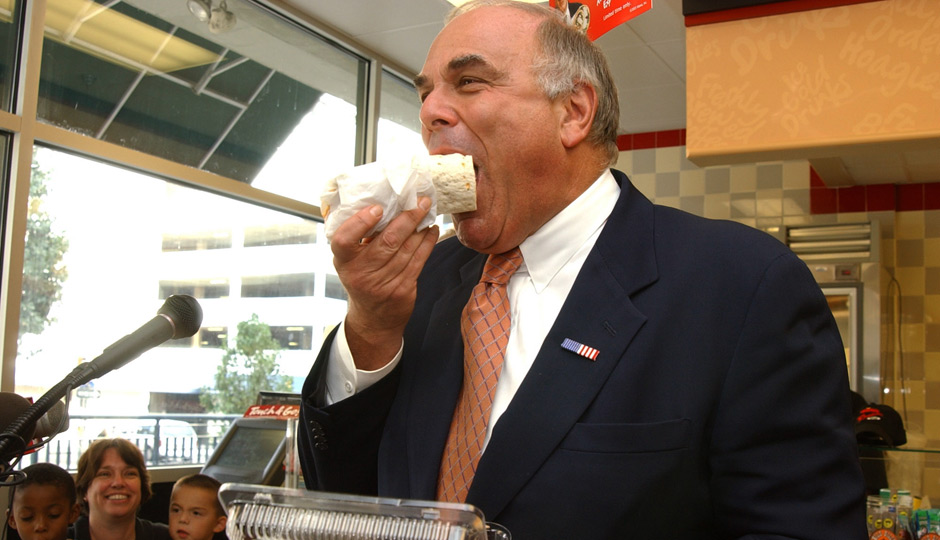
Pennsylvania Gov. Ed Rendell tastes the new Rendelli Wrap, a sandwich named after him, at a Wawa convenience store Tuesday, September 23, 2003, in Philadelphia. AP Photo| Jessica Griffin
Ed Rendell
The Media Critic
Ed Rendell told a Philadelphia magazine reporter this publication “sucks the big wong.” Why Rendell uses “wong” instead of “wang” is a mystery for the ages. Rendell, incidentally, was happy about this. Buzz Bissinger quotes him in A Prayer for the City: “Anybody who knows me knows that it has the ring of truth, so I’m cooked. If I had said, ‘Your magazine eats shit,’ I could have denied it.”
John Street
The Civil Libertarian
In 2005, John Street — who served two terms from 2000 to 2008 — went to the Franklin Mills movie theater to see Sahara. He, his wife and a police officer were stopped by ticket-taker Joseph Hood, a longtime employee at the theater. Hood, who has cerebral palsy, asked to check the mayor’s bag.
The mayor refused. He claimed later he was taking a stand for American liberties and asked if AMC was “searching bags of 61-year-old gray-haired men?” He actually had a staffer call the theater to complain. (Officially, the mayor “wanted to understand the latitude, the parameters of the policies just for his own edification.”)
Hood’s mother, Joanne Horochiwsky, wrote a letter to the Northeast News Gleaner (R.I.P.): “How dare he as a political figure endanger one of the biggest malls in the country because he was insulted that my son asked him if he could check his bag. Joe was only doing his job.” When the mayor didn’t apologize to her son, Horochiwsky had a retort: “That’s what I would expect with no character and no backbone.”
Follow @dhm on Twitter.